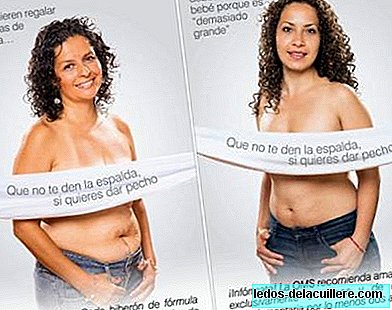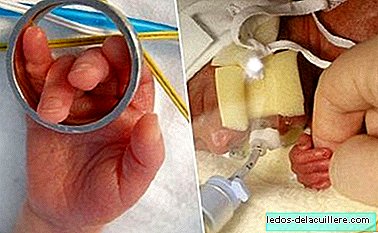
A couple of days ago we were talking about a campaign to promote breastfeeding in Mexico, campaign that had caused some controversy. Well, in response to that performance, posters have been drawn up that emulate the former, but with "real women."
And is that one of the criticisms of the campaign posters "Don't turn your back on him, breastfeed him" it is that they represented slender, beautiful and in some cases operated women, who according to some did not respond to the most usual and less idyllic image of a woman who has just had a baby who breastfeeds.
But perhaps the most important thing is the message you want to give, because the motto chosen for this "counter-campaign" is: "Do not turn your back if you want to breastfeed", and that points directly to the authorities to really facilitate breastfeeding.
This avoids the stereotyped image of women and at the same time emphasizes that if a mother does not breastfeed it is not because she "turns her back" on her baby (something that was seen with the first motto and that we criticized when talking about the mentioned campaign). It would be the lack of information and support that leads many women not to breastfeed their babies.
This is a series of photographs and website that the group has launched AliMente project, thus responding to the idea of the government of Mexico City. Although they applaud the initial idea of the previous campaign, they do not consider it entirely appropriate.
Its own campaign seeks to provide key information to mothers and future mothers about the main barriers and obstacles that influence the decision and the process of breastfeeding, as well as suggest attitudes to overcome them. In addition, it sends implicit messages to different actors in society about the responsibility that each one of them has to ensure that women can breastfeed their children.
With these posters many women can be more identified than with the figures of famous women of the institutional campaign, although they are less popular precisely because of the anonymity of the models. But in essence, the message is very good.
If you want to increase breastfeeding rates, you will need laws that truly support women, expand maternity leave, create adequate work spaces (after at least six months to exclusively breastfeed the baby), involve the environment so that support women given the importance of breastfeeding, train professionals, pediatricians, midwives ...
Therefore, real help for real women, that is what it is intended the counter-campaign "Do not turn your back if you want to breastfeed". A different style, a different claim, which one do you prefer?












